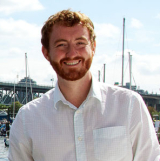Occupy Wall Street has directed our attention to the extreme concentration of wealth resulting from decades of policy designed to trickle down prosperity. Through using a single type of bank debt currency, we allocate our labor and resources to benefit a global elite instead of our communities. Can we engage our local leaders and municipal governments to break this currency monoculture? Can global examples of currency ecology provide a map for improving educational experiences, enhancing the arts and building resilience to the fragility of central bank finance mechanisms?
In Extraenvironmentalist #29 we speak with Gwendolyn Hallsmith and Bernard Lietaer about Creating Wealth: Growing Local Economies with Local Currencies, their recent book on how to implement complimentary currency systems while creating intentional cities with money ecosystems. We cover examples of complimentary currencies in Brazil (saber), the United States (time banking), Switzerland (WIR), Belgium, Lithuania and Uruguay (C3) to demonstrate how alternative forms of money can help to enhance our education, business and sense of community. Could the WIR be the reason for Switzerland’s stability? Are there ways to retool education funding that could help us realize our dreams?
Note: Justin’s poor understanding of French led to him mis-speaking Bernard’s last name, it should be said Liet-ya instead of Liet-air






